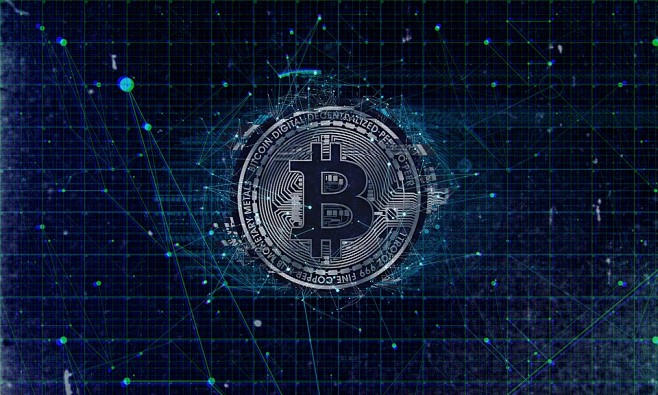|
|
Okay, so I need to understand what LSD is. Let me start by recalling what I know. LSD stands for Lysergic acid diethylamide. I've heard it's a hallucinogenic drug, right? It's often associated with psychedelic experiences. But I'm not entirely sure how it works. I think it's a synthetic compound, maybe developed in the 1950s? I remember something about Albert Hofmann being involved in its discovery.
Wait, how does LSD affect the brain? I think it interacts with neurotransmitters, specifically serotonin. Serotonin receptors, maybe the 5-HT receptors? There are different types, like 5-HT1A, 5-HT2A, etc. I think LSD primarily targets the 5-HT2A receptors. But what does that mean exactly? Receptors are proteins on neurons that receive signals, so by binding to them, LSD might disrupt normal brain chemistry, leading to hallucinations and altered perception.
The effects of LSD are supposed to be long-lasting, like 8 to 12 hours. Users report seeing colors and patterns, synesthesia, time distortion, and emotional changes. But there's also a risk of bad trips, where people have panic attacks or paranoia. How does that happen? Maybe the imbalance in serotonin affects mood regulation areas of the brain.
I've heard about the term "bad trip" and "good trip." What differentiates them? It might depend on the user's mindset, environment, and dosage. A higher dose could be more intense but also more dangerous. Are there any long-term effects? I'm not sure. Some studies suggest potential risks to mental health, especially in susceptible individuals, like increased risk of psychosis or depression. But I also know that LSD is sometimes used in controlled settings for research on mental health conditions.
Is LSD legal? In many places, it's a controlled substance with strict regulations. The US, for example, classifies it as a Schedule I drug, meaning it has a high potential for abuse and no accepted medical use. However, there's research happening in places like the UK and Canada. What about the history? It was first synthesized in 1938 by瑞士的Dr. Hofmann, and he accidentally discovered its effects while working on ergot alkaloids. He called it "the magic potion."
Are there any therapeutic uses being explored? I've heard about studies using microdoses of LSD for depression, anxiety, and PTSD. Microdosing is taking sub-perceptual doses, which might not cause hallucinations but still have benefits. But the evidence is still preliminary, right? More research is needed.
What are the risks of taking LSD? Overdose isn't common because the effects last so long, but there can be dehydration, overheating, or accidents due to altered judgment. Also, interactions with other substances, like other hallucinogens or medications, could be dangerous. set and setting—user's mindset and environment—are crucial. A bad set (negative mindset) combined with a bad setting ( unsafe environment) increases risks.
I should also mention that LSD is typically taken as a pill, liquid, or blotter paper. It's odorless and tasteless, which makes it easy to ingest. The onset of effects is usually 30 minutes to 2 hours after ingestion. The peak is around 2-6 hours, and then it wears off gradually. The experience can be overwhelming, so people are advised to take it in a safe, familiar environment with trusted friends.
Are there any withdrawal symptoms? I think LSD doesn't cause physical dependence like opioids or benzodiazepines, but psychological dependence might be possible. After taking it, some people might feel emotionally drained or have a sense of depletion. But I'm not sure how common that is.

In summary, LSD is a potent hallucinogen that affects serotonin receptors, leading to altered perception and emotional states. It has both potential therapeutic uses and significant risks, depending on usage context and individual factors. Legal status varies, and research is ongoing to explore its medical applications while understanding the risks involved.
LSD (Lysergic acid diethylamide) is a synthetic hallucinogenic drug first synthesized in 1938 by Swiss chemist Albert Hofmann. Here's a structured overview:
Chemistry & Mechanism
Function: LSD interacts primarily with serotonin receptors, particularly 5-HT2A receptors, disrupting normal neurotransmitter activity. This leads to altered perception, mood, and cognition.
Synthesis: Derived from ergot alkaloids, LSD was initially studied for its potential therapeutic effects before recreational use became prevalent.
Effects
Psychological: Hallucinations, synesthesia, time distortion, emotional swings, and ego dissolution. Effects last 8–12 hours.
Physical: Dilated pupils, increased heart rate, and dry mouth. Rare severe reactions include dehydration or overheating.
Risks: "Bad trips" (panic, paranoia) are linked to dosage, mindset, and environment ("set and setting"). Overdose is rare due to long duration.
Legal Status
Controlled Substances: In the U.S., LSD is a Schedule I drug (no accepted medical use, high abuse potential). Legal in some countries for research (e.g., UK, Canada).
Therapeutic Research
Microdosing: Sub-perceptual doses are being studied for depression, anxiety, and PTSD, though evidence remains preliminary.
Controlled Settings: Research in psilocybin-assisted therapy for mental health conditions, with LSD studies pending regulatory approval.
Usage & Safety
Forms: Typically ingested as pills, blotter paper, or liquid. Odorless and tasteless.
Onset/Peak: Effects begin 30–120 minutes post-ingestion, peaking at 2–6 hours.
Safety Precautions: Avoid in unsafe environments, with substances/medications. Dehydration, accidents, and interactions are risks.
Psychological Dependence
Withdrawal: No physical dependence, but some report emotional depletion post-use. Psychological dependence is possible but less common.
Historical Context
Discovery: Hofmann's accidental ingestion in 1943 led to its nickname, "the magic potion." Early 1960s saw widespread recreational use.
Conclusion
LSD's complex effects balance potential therapeutic benefits with significant risks. Ongoing research aims to harness its properties safely, while legal and cultural frameworks evolve. Responsible use in controlled settings is crucial to mitigate harm.
|
|